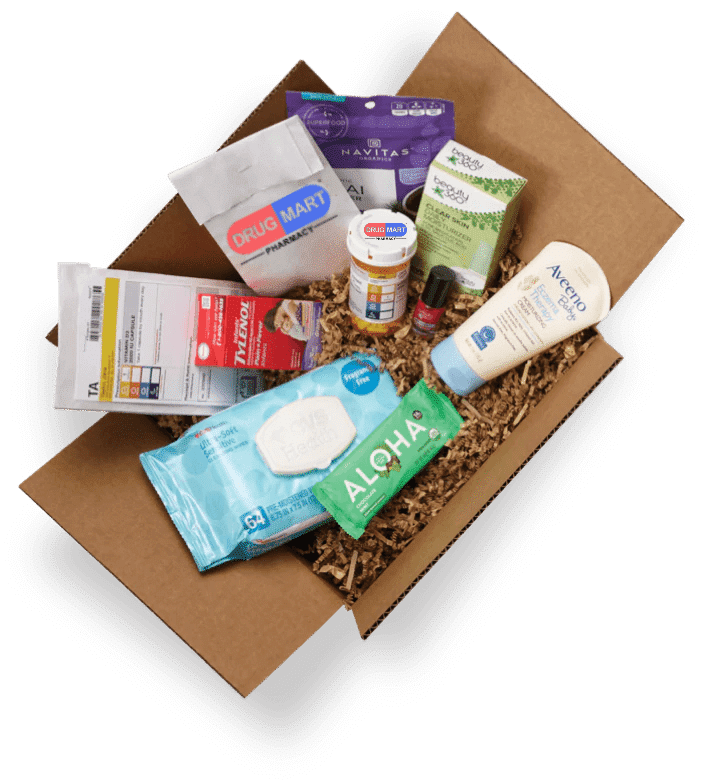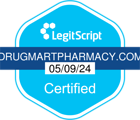Winter is a time of year when colds and other illnesses are more common. If you're feeling under the weather, there are many over-the-counter remedies that can help you feel better. Here are some of the top over-the-counter (OTC) remedies for common winter ailments.
- For congestion and cough, decongestants and cough suppressants can help relieve symptoms. Look for products that contain pseudoephedrine or guaifenesin. These can be taken in pill form or as a syrup.
- For sore throat, try lozenges or sprays that contain numbing agents like benzocaine or menthol. These can help relieve pain and discomfort.
- For headaches and body aches, pain relievers like acetaminophen and ibuprofen can help. Be sure to follow the dosing instructions on the label.
- For runny nose and sneezing, antihistamines can be effective. These can be taken as pills or as a nasal spray. Be aware that some antihistamines can cause drowsiness, so it's best to avoid driving or operating heavy machinery if you're using them.
- For coughs that produce a lot of mucus, expectorants can help thin the mucus and make it easier to cough up. Products that contain guaifenesin are common expectorants.
It's always a good idea to talk to your pharmacist or healthcare provider before taking any over-the-counter remedies. They can help you choose the right product for your symptoms and provide guidance on proper dosing. Additionally, be sure to follow the dosing instructions on the label and never take more than the recommended amount. With the right over-the-counter remedies, you can help relieve your winter ailments and get on the road to feeling better.
Here is some more detailed information on the different remedies discussed above:
Over-the-counter (OTC) decongestants and cough suppressants are commonly used to relieve symptoms of congestion and cough. These products are available without a prescription and can be found at pharmacies and other retail stores.
Decongestants work by narrowing the blood vessels in the nose, which reduces swelling and congestion. This can help to relieve a stuffy nose and make it easier to breathe. Common decongestants include pseudoephedrine and phenylephrine. These are available as pills, liquids, and nasal sprays.
Cough suppressants, also known as antitussives, work by reducing the urge to cough. This can help to relieve chest discomfort and make it easier to sleep. Common cough suppressants include dextromethorphan and codeine. These are available as pills, liquids, and syrups.
It's important to follow the dosing instructions on the label when using decongestants and cough suppressants. Overuse or misuse of these products can cause side effects, such as dizziness, drowsiness, and rapid heart rate. If you're pregnant, breastfeeding, or have certain medical conditions, be sure to talk to your pharmacist or healthcare provider before using these.
Over-the-counter (OTC) sore throat lozenges and sprays are medications that can be purchased without a prescription to help alleviate the discomfort associated with a sore throat. These products typically contain active ingredients such as benzocaine, menthol, or eucalyptus oil, which can help to numb the throat and reduce inflammation.
Sore throat lozenges are small, medicated candies that are designed to dissolve slowly in the mouth. When used properly, they can help to provide relief from the pain and discomfort of a sore throat by numbing the throat and reducing irritation. Many lozenges also contain ingredients that can help to boost the immune system and fight off infection, making them a useful tool in the fight against a sore throat.
Sore throat sprays, on the other hand, are liquid medications that are sprayed directly onto the throat. These sprays typically contain the same active ingredients as lozenges, but are delivered in a different form. When used properly, they can help to provide fast-acting relief from sore throat pain and discomfort.
It's important to read the label of any over-the-counter sore throat medication carefully before using it, and to follow the instructions provided. Some products may not be suitable for people with certain medical conditions, and it's important to speak with a healthcare provider if you have any concerns.
Over-the-counter (OTC) pain relievers are medications that can be purchased without a prescription to help alleviate mild to moderate pain. These products are commonly used to treat headaches, muscle aches, toothaches, and other types of pain.
There are several different types of OTC pain relievers, including acetaminophen, ibuprofen, and naproxen. Acetaminophen is a commonly used pain reliever that is effective at reducing fever and relieving pain, but it does not have anti-inflammatory properties. Ibuprofen and naproxen, on the other hand, are non-steroidal anti-inflammatory drugs (NSAIDs) that can help to reduce inflammation and swelling in addition to relieving pain.
It's important to read the label of any OTC pain reliever carefully before using it, and to follow the instructions provided. Some products may not be suitable for people with certain medical conditions, and it's important to speak with a healthcare provider if you have any concerns. It's also important to avoid taking more than the recommended dose of any OTC pain reliever, as doing so can increase the risk of side effects.
Over-the-counter (OTC) antihistamines are medications that can be purchased without a prescription to help alleviate symptoms of allergies, such as runny nose, sneezing, and itchy eyes. These products work by blocking the action of histamine, a chemical that is released by the body in response to allergens.
There are several different types of OTC antihistamines, including diphenhydramine, loratadine, and cetirizine. Diphenhydramine is a sedating antihistamine that is effective at providing fast-acting relief from allergy symptoms, but it can cause drowsiness. Loratadine and cetirizine are non-sedating antihistamines that do not cause drowsiness, but may take longer to provide relief from symptoms.
It's important to read the label of any OTC antihistamine carefully before using it, and to follow the instructions provided. Some products may not be suitable for people with certain medical conditions, and it's important to speak with a healthcare provider if you have any concerns. It's also important to avoid driving or operating heavy machinery while using OTC antihistamines, as some products can cause drowsiness.
Over-the-counter (OTC) medications for cough are medications that can be purchased without a prescription to help alleviate the symptoms of a cough. These products typically come in the form of syrups, lozenges, or sprays, and are designed to provide relief from cough symptoms by suppressing the cough reflex, reducing inflammation, or thinning mucus.
There are several different types of OTC cough medications available, including dextromethorphan, guaifenesin, and menthol. Dextromethorphan is a cough suppressant that works by blocking the cough reflex in the brain, while guaifenesin is a mucolytic that helps to thin and loosen mucus in the airways. Menthol is an ingredient that can provide a cooling sensation and help to soothe the throat.
It's important to read the label of any OTC cough medication carefully before using it, and to follow the instructions provided. Some products may not be suitable for people with certain medical conditions, and it's important to speak with a healthcare provider if you have any concerns. It's also important to avoid using OTC cough medications for more than a few days at a time, as this can lead to rebound congestion and other side effects.
Our pharmacists at Drug Mart are always available to help you decide on the right over-the-counter treatment to help with your specific needs. Feel free to stop by our store in South Plainfield and ask us for advice.




.svg)
.svg)








